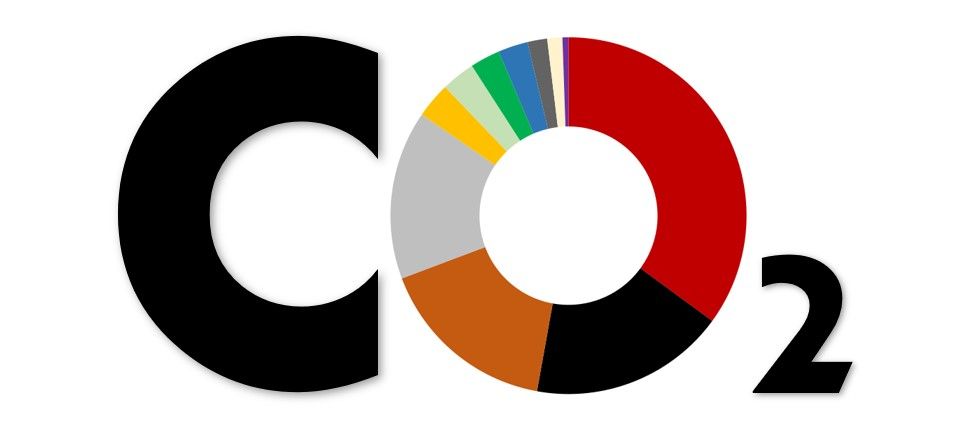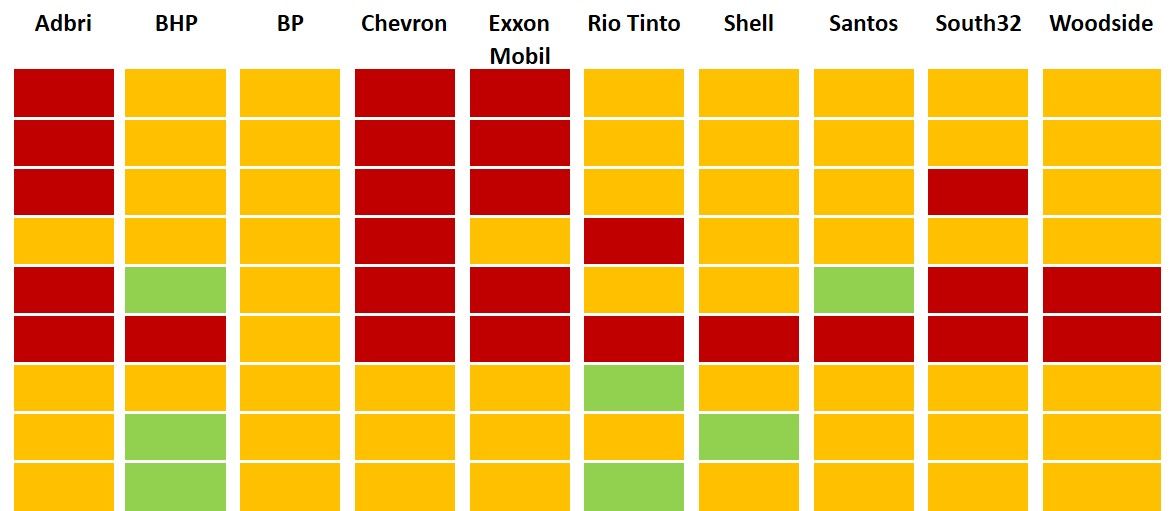Gas seeping to surface from Chevron's Barrow Island oil operation
The WA environment regulator is investigating unknown amounts of hydrocarbons rising to the surface on the Class A nature reserve.
If South32’s low profile coal-burning Worsley Alumina operated like Alcoa’s facilities 1.5 million tonnes of carbon emissions a year would be avoided: the same as Alcoa's Wagerup refinery.

EXCLUSIVE ANALYSIS
South32's coal-fired Worsley refinery emits two-thirds more greenhouse gases to make a tonne of alumina than gas-fuelled Alcoa, a Boiling Cold analysis reveals.
Both companies mine the jarrah forests of South West WA for bauxite, transport it downhill to be refined into alumina, and then ship it to aluminium smelters worldwide.
Alcoa's three refineries create the equivalent of 0.49 tonnes of CO2 for each tonne of alumina. South32's 4.5 million tonnes a year Worsley Alumina operation 15km north of Collie emits 0.82 tonnes of CO2 for each tonne of product (calculation details below).
The difference is primarily due to the fuels used to power the refineries: gas at Alcoa and mainly coal at Worsley.
Worsley's 3.7 million tonnes of carbon emissions make it the fourth-biggest carbon polluter in WA: more than the ageing Muja power station and almost as much as Chevron's Wheatstone LNG plant.

If South32 produced alumina in WA with Alcoa's lower carbon intensity it would avoid 1.5 million tonnes of greenhouse gases: the same as Alcoa's Wagerup refinery.
South32 has to date escaped the ire of environmentalists and climate-focused investors that have targeted more prominent gas producers and coal-fired power generation.
The choice of cheaper coal is a significant factor in allowing South32 to describe Worsley as "one of the world's largest and lowest-cost alumina producers."
The Perth-based company received $US1.12 billion ($1.45 billion) in revenue last financial year from the 86 per cent of Worsley it owns, and earnings before interest and tax were $US160 million ($207 million).
South32 is in the process of exiting thermal coal mining by selling its South African mines for a token amount but to date appears in no hurry to stop burning coal in its home State.
South32's current corporate emissions target is simply not to exceed its 2015 emissions by 2021.
Investor Group Climate Action 100+ recently failed South32 on its medium-term emission target and decarbonisation strategy.

A South32 spokesperson said it has engaged with CA100+ and has work underway that will be included in the following assessment.
"Studies are ongoing in relation to fuel switching options, a key strategy to reduce the carbon intensity of the refinery," the South32 spokesperson said.
Some emissions reductions at Worsley will be achieved in the short term, including modifications to mud-washing facilities.
The miner will be "stepping up" its ambitions with a release of its next emissions reduction target and details of a path to net-zero by mid-2022, the spokesperson said.
While South32 is contemplating moving away from coal, Alcoa wants to reduce its reliance on the WA gas market, where it is the biggest buyer.
"While natural gas produces significantly fewer carbon emissions than coal, we are actively seeking to reduce our energy intensity and reliance on this fuel source," an Alcoa spokesperson said.
US-giant Alcoa owns 60 per cent of the Alcoa operations in Australia, and ASX-listed Alumina Limited holds the remaining equity.
Alcoa's move away from gas in WA is restricted by existing long-term gas supply contracts, according to the 2019 Alumina Limited Sustainability Update.

An Alcoa spokesperson said the company was researching using renewable energy to provide process heat to the Bayer process of extracting alumina from bauxite.
According to its 2020 Sustainability Report released last week, Alcoa's first step will be to demonstrate a technology called mechanical vapour recompression that generates steam with electricity instead of gas-fired boilers.
Alcoa is also a partner in the University of Adelaide's Solar Thermal in the Bayer Alumina Process research program.
Both Alcoa and South32 support a proposed Heavy Industry Low-Carbon Transition Cooperative Research Centre that will include the study of lower carbon calcination, the last step of the Bayer process.
South32's reliance on coal, which mainly comes from Griffin Coal, is potentially unreliable as well as damaging to the climate.
In June 2019, a fire damaged equipment at Griffin and stopped production. Months later, the WA Government quashed the option of South32 importing coal from Indonesia in response to concerns about the financial viability of Griffin Coal.
South32 then started stockpiling coal "to provide flexibility in the event of any potential future supply distributions."
Concerns about Griffin's viability deepened in July 2020 when its principal customer Bluewaters Power issued breach of contract notices and sought to take control of its coal supply.
South32's product could also become discounted as industries like car manufacturing increasingly look at the emissions intensity of their inputs.
In contrast, in 2020, Alcoa launched a premium alumina product called EcoSource certified to emit less than 0.6t CO2e for each tonne of alumina.
The Alcoa spokesperson said it had the lowest global carbon intensity of any alumina refiner, and the EcoSource benchmark was two times better than the industry's average of 1.2t CO2e/tonne of alumina.
Calculations
Emissions and production from WA's four alumina refineries were analysed for three years from July 2017 in case there were significant annual variations (there were not).
Clean Energy Regulator emissions figures and production from South 32 and Alumina Limited was used.
Two Alinta gas-fired power plants near Alcoa's Pinjarra and Wagerup refineries do not supply power to Alcoa. However, Alinta's Pinjarra plant provides steam to Alcoa and one-third of its plant's emissions were allocated to Alcoa for this steam supply.
Boiling Cold provided the complete calculations to Alcoa and South32 in the preparation of this story. Neither company commented on them. See linked spreadsheet.
Correction 3 May 2021 4:40PM: The initial analysis assumed the South32 production data was for the entire Worsley refinery, but it was only South32's 86 per cent share. The correct calculated carbon intensity of Worsley alumina is 0.82 tCO2e/tonne alumina, not 0.95.
Main image: Chimney graphic. Source: Boiling Cold
All the info and a bit of comment on WA energy and climate every Friday